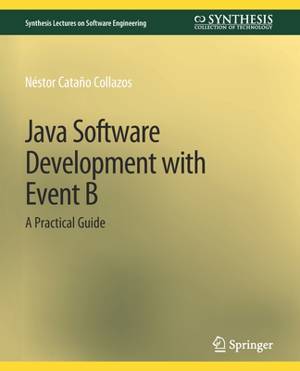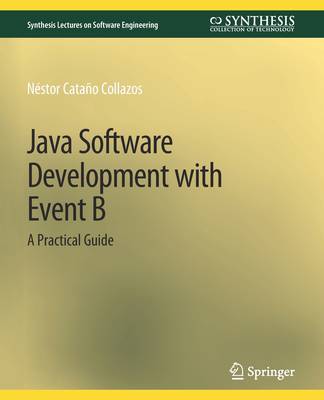
Je cadeautjes zeker op tijd in huis hebben voor de feestdagen? Kom langs in onze winkels en vind het perfecte geschenk!
- Afhalen na 1 uur in een winkel met voorraad
- Gratis thuislevering in België vanaf € 30
- Ruim aanbod met 7 miljoen producten
Je cadeautjes zeker op tijd in huis hebben voor de feestdagen? Kom langs in onze winkels en vind het perfecte geschenk!
- Afhalen na 1 uur in een winkel met voorraad
- Gratis thuislevering in België vanaf € 30
- Ruim aanbod met 7 miljoen producten
Zoeken
€ 45,95
+ 91 punten
Uitvoering
Omschrijving
The cost of fixing software design flaws after the completion of a software product is so high that it is vital to come up with ways to detect software design flaws in the early stages of software development, for instance, during the software requirements, the analysis activity, or during software design, before coding starts. It is not uncommon that software requirements are ambiguous or contradict each other. Ambiguity is exacerbated by the fact that software requirements are typically written in a natural language, which is not tied to any formal semantics. A palliative to the ambiguity of software requirements is to restrict their syntax to boilerplates, textual templates with placeholders. However, as informal requirements do not enjoy any particular semantics, no essential properties about them (or about the system they attempt to describe) can be proven easily. Formal methods are an alternative to address this problem. They offer a range of mathematical techniques and mathematical tools to validate software requirements in the early stages of software development. This book is a living proof of the use of formal methods to develop software. The particular formalisms that we use are EVENT B and refinement calculus. In short: (i) software requirements as written as User Stories; (ii) they are ported to formal specifications; (iii) they are refined as desired; (iv) they are implemented in the form of a prototype; and finally (v) they are tested for inconsistencies. If some unit-test fails, then informal as well as formal specifications of the software system are revisited and evolved. This book presents a case study of software development of a chat system with EVENT B and a case study of formal proof of properties of a social network.
Specificaties
Betrokkenen
- Auteur(s):
- Uitgeverij:
Inhoud
- Aantal bladzijden:
- 89
- Taal:
- Engels
- Reeks:
Eigenschappen
- Productcode (EAN):
- 9783031014222
- Verschijningsdatum:
- 27/01/2020
- Uitvoering:
- Paperback
- Formaat:
- Trade paperback (VS)
- Afmetingen:
- 190 mm x 235 mm
- Gewicht:
- 185 g

Alleen bij Standaard Boekhandel
+ 91 punten op je klantenkaart van Standaard Boekhandel
Beoordelingen
We publiceren alleen reviews die voldoen aan de voorwaarden voor reviews. Bekijk onze voorwaarden voor reviews.









